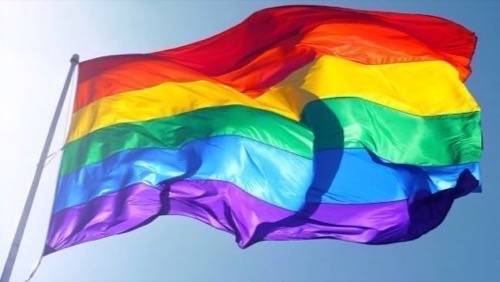
Not so long ago, coming out in favor of gay rights would have been a corporate kamikaze mission. It’s almost surreal that now one of the most influential companies in the U.S. not only privately cultivates a climate of acceptance and diversity but publicly advocates for social justice as well. Google might not always live up to its now-retired Don’t Be Evil promise, but the company remains a pioneer when it comes to leveraging its high profile status for the kind of visibility that effects social change.
In a new video posted to YouTube, some of Google’s Lesbian, Gay, Bisexual, Transgender and Queer (LGBTQ) employees make a moving case for voting in support of marriage equality in four states on the November 6 general election. In Maine, Maryland and Washington state, legislation legalizing same-sex marriage is up for the vote, while in Minnesota, same-sex marriage faces a state-wide ban unless voted down.
Gayglers In Their Element
Google’s track record on issues of gay rights and LGBTQ equality is exemplary, even among like-minded progressive corporate peers. Like new Googlers (“Nooglers”), gay Googlers even have their own cutesy company nickname: “Gayglers.” In 2008, Google co-founders Sergey Brin and Larry Page donated $140,000 to combat California’s Proposition 8, a contentious piece of legislature that sought to block same sex couples from legal marriage status. In July 2012, the company launched its Legalise Love campaign, a global initiative to cement its non-discrimination policies and “ensure that all of our employees have the same inclusive experience outside of the office as they do at work” – even in countries like Singapore, where consenting sexual acts between same-sex partners remain punishable by law. “At Google, we encourage people to bring their whole selves to work,” Google writes on its diversity sub-page. “In our more than 70 offices around the world, we’re committed to cultivating a work environment where Googlers can be themselves and thrive.”
The new video isn’t the first from the company. Google was quick to release its own installment in Dan Savage’s iconic It Gets Better series, a social justice campaign that sprung out of a dark few months in late 2010 when a rash of suicides among gay teens made headlines.
Apple’s Stealth Record On LGBTQ Issues
But what about other companies? Apple, true to form, keeps a low profile. The successor to Steve Jobs – and the helm of the world’s most valuable company – is gay, but you might not know it, unless you, well, knew. Apple came out swinging against Prop 8 in 2008, but these days CEO Tim Cook doesn’t take up the mantle of LGBTQ visibility often. Most of Apple’s recent gay imbroglios have revolved around iOS. In 2011, the company yanked a “gay cure” app from its software stable and iOS 6 added “gay” emoji – tiny icons depicting same sex love (your mileage may vary). Apple, along with Facebook and many other big names in tech, released its own It Gets Better video too.
To Microsoft, Social Justice Is Old Hat
Microsoft may no longer be paving the way in the tech world, but the company’s precocious record on LGBTQ equality is historically pretty impressive. According to GLEAM, Microsoft’s own organization for its gay, lesbian, bisexual and transgender employees founded in 1993, the company was among the world’s first to extend benefits to same-sex domestic partners and to add a non-discrimination clause for sexuality into its coporate policy. More recently, Microsoft went on record to advocate for marriage equality in its own backyard concerning Washington’s marriage equality lesgislation, SB 6239 and HB 2516:
“As other states recognize marriage equality, Washington’s employers are at a disadvantage if we cannot offer a similar, inclusive environment to our talented employees, our top recruits and their families. Despite progress made in recent years with domestic partnership rights, same-sex couples in Washington still hold a different status from their neighbors. Marriage equality in Washington would put employers here on an equal footing with employers in the six other states that already recognize the committed relationships of same-sex couples… This in turn will help us continue to compete for talent.”
Remarkably, when it comes to the 2012 presidential race, the gay marriage issue has hardly registered. But technology’s major players aren’t giving it the hot potato treatment. Whether it’s to cultivate an ecosystem of diversity or to stay competetive in tech’s cutthroat talent headhunt, it’s fitting that the companies we rely on to peer deep into the future of innovation have their eyes to the horizon when it comes to social justice too.
Pride flag photo by Shutterstock.

















